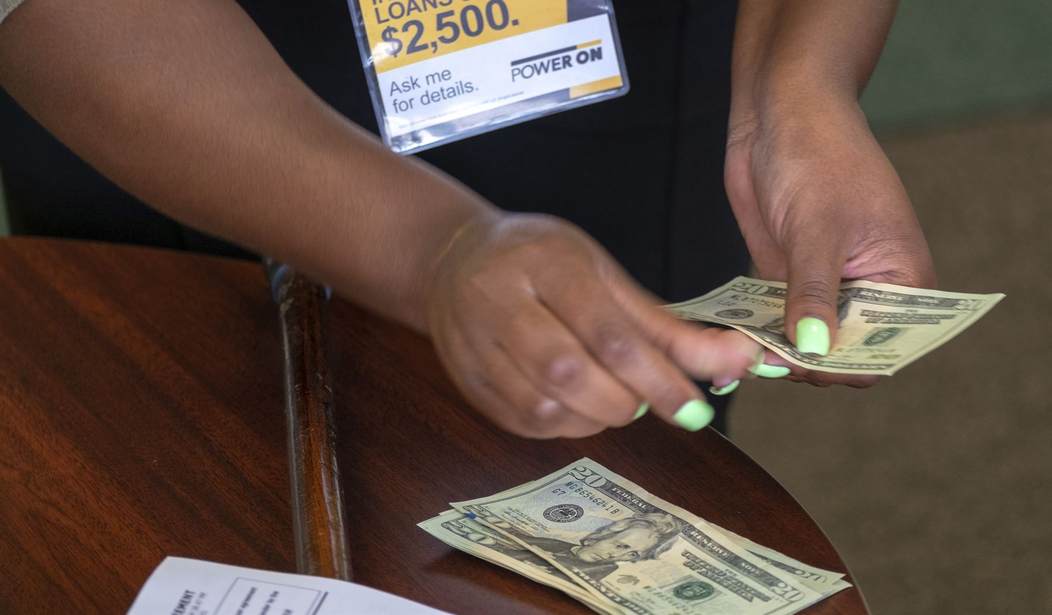The embattled Consumer Financial Protection Bureau (CFPB) is in the news once again; now they are suing SoLo Funds, a zero-interest, peer-to-peer lending company, claiming the company charged borrowers illegal fees.
The Consumer Financial Protection Bureau (CFPB) is suing SoLo Funds, a fintech company that enables peer-to-peer lending, alleging that the company used “digital dark patterns” to deceive borrowers and illegally took fees while advertising to consumers that there were no fees.
“The CFPB is suing SoLo for using digital trickery to hide interest and fees on its online loans,” CFPB Director Rohit Chopra said in a May 17 press release announcing the suit. “SoLo has had repeated run-ins with state regulators, and we are putting a stop to their fake tipping scheme.”
The CFPB also alleges that the company misrepresented the cost of loans, interfered with the ability of consumers to understand what they were agreeing to, collected on loans they shouldn’t have and made false threats related to credit reporting. CFPB also stated that SoLo Funds’ business model did not provide safeguards.
“SoLo’s advertisements and loan disclosures tout no-interest loans when, in fact, virtually all loans on the SoLo Platform include a lender ‘tip’ that goes to the lender, a SoLo ‘donation’ that goes to SoLo, or both,” according to the CFPB.
The company was initially founded to provide lending services to underserved borrowers, particularly those in the lower- or lower-middle-class income brackets. These borrowers present a risk that may preclude them from borrowing from more traditional sources.
Rodney Williams and Travis Holoway started SoLo Funds in 2018 to provide lending to underserved Americans, especially those who are often targeted by predatory lending practices due to their low- to middle-class status.
The company raised some $13 million in venture-backed funding, according to Crunchbase. TechCrunch profiled the company in 2021 when it raised $10 million in Series A funding. Along the way, SoLo Funds attracted some high-profile investors, including Serena Ventures, (founded by tennis legend Serena Williams), Endeavor Catalyst, Alumni Ventures and Techstars.
In 2023, SoLo Funds said it reached 1 million registered users and more than 1.3 million downloads.
This seems to conflict with the CFPB's original purpose, which was to ensure that underserved borrowers had more options. Since the Supreme Court has allowed a federal bureau of questionable constitutional authority to stand, one would think that the bureau in question would be facilitating, not punishing, these kinds of voluntary arrangements.
If the issue is one of full and unambiguous disclosure, that would seem to be something that could be settled outside the legal system. SoLo stated that they have been working with CFPB for 18 months to try to settle this legal action.
Regarding the new CFPB lawsuit, SoLo Funds claims in a statement to TechCrunch that it was voluntarily working toward a regulatory framework with the CFPB for the last 18 months. It said that on May 16, both entities primarily agreed on a path forward and, said “we were blindsided the next morning with a suit.”
SoLo Funds CEO Travis Holoway said in a statement that “minority innovators were challenged to create new models to address our communities’ financial inequalities.” And now that the company is doing that, the “regulators seem driven by press releases when they should be motivated by true consumer protection and empowering equitable solutions.”
See Related: Update: More Wage-Wrangling at the Consumer Financial Protection Bureau
The Consumer Financial Protection Bureau Lives Another Day, SCOTUS Rules
In related news, legal actions by CFPB against short-term lenders are in part the cause of Senator Mitch McConnell (R-KY) filing the SHOP Act to prevent jurisdictional evaluations, or "judge-shopping," by entities private or public, to deliberately place cases in courts where they are more likely to achieve a desired outcome.
This is a developing story. We will continue to watch as this case unfolds and bring you updates as events warrant.













Join the conversation as a VIP Member